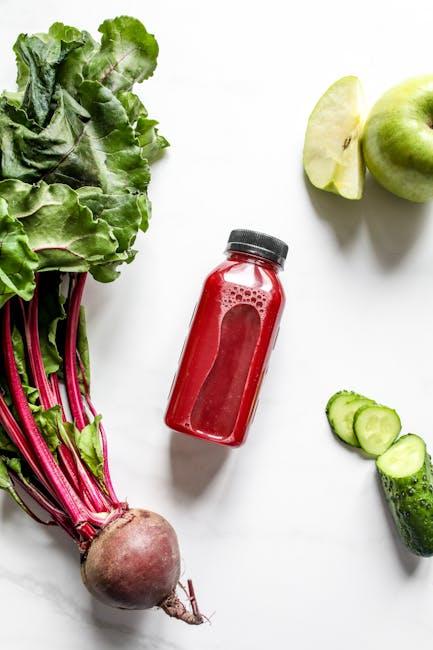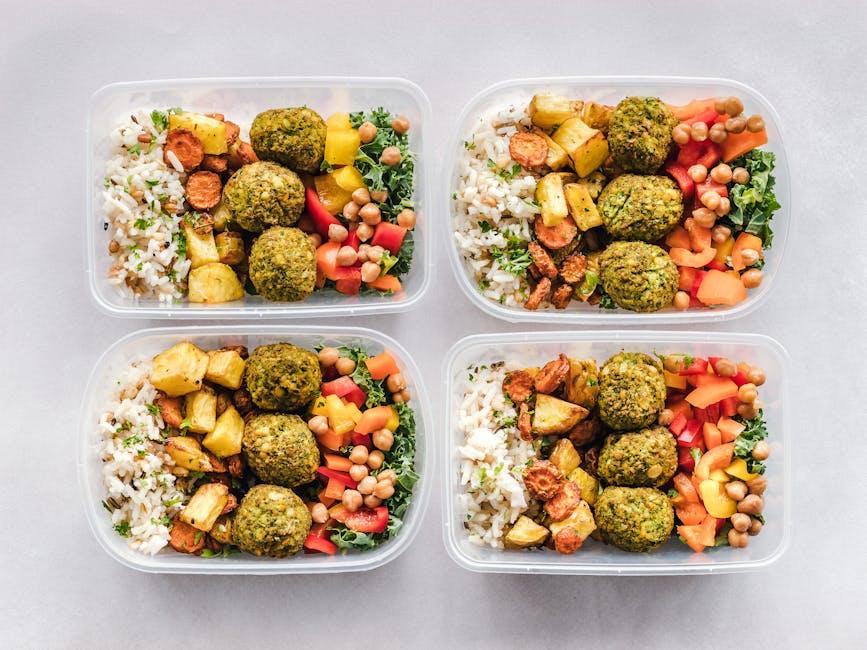In recent years, the vibrant world of plant-based eating has blossomed from niche interest to mainstream movement, capturing the attention of health enthusiasts and culinary explorers alike. With its promise of nourishing the body, respecting the planet, and tantalizing the taste buds, plant-based eating invites us to reimagine our plates and our priorities. But what exactly does it entail, and how can one embark on this flavorful journey? In this article, we delve into the myriad benefits of embracing a plant-based lifestyle and offer practical tips to help you get started, whether you’re a curious newcomer or a seasoned food lover seeking a refreshing change.
Exploring Nutritional Advantages of a Plant-Based Diet
Embracing a plant-based diet opens up a world of nutritional benefits that can enhance overall well-being. This dietary choice is rich in vitamins, minerals, and antioxidants, which play a crucial role in maintaining a healthy body. By focusing on whole, plant-based foods, individuals often experience improved heart health, as these foods are naturally low in saturated fats and cholesterol. Additionally, the high fiber content found in fruits, vegetables, legumes, and grains supports a healthy digestive system and can aid in weight management.
- Improved Heart Health: Lower levels of LDL cholesterol and blood pressure.
- Enhanced Digestive Health: High fiber content promotes regularity.
- Better Weight Management: Nutrient-dense and lower calorie foods.
- Increased Energy Levels: Balanced macronutrient intake fuels the body.
Incorporating a variety of plant-based foods ensures a diverse intake of essential nutrients. This dietary pattern encourages the consumption of whole grains, nuts, and seeds, which are excellent sources of protein and healthy fats. By prioritizing these nutrient-rich foods, individuals can experience a range of health improvements, making plant-based eating a sustainable and rewarding choice.
Sustainable Eating: Environmental Impact and Ethical Considerations
Choosing a plant-based diet can significantly reduce your carbon footprint and contribute to a healthier planet. The agricultural industry, particularly livestock farming, is a major source of greenhouse gas emissions. By embracing plant-based eating, you can help reduce these emissions, conserve water, and minimize deforestation. Moreover, plant-based diets often require fewer resources, making them a more sustainable choice for the environment.
From an ethical standpoint, a plant-based diet aligns with values of compassion and animal welfare. By reducing reliance on animal products, you support more humane treatment of animals. Here are some key benefits:
- Reduced greenhouse gas emissions: Plant-based foods generally produce fewer emissions compared to animal-based products.
- Conservation of natural resources: Less water and land are required for plant agriculture.
- Improved biodiversity: Less deforestation means more habitats for wildlife.
- Animal welfare: Decreased demand for animal products leads to better treatment of animals.

Crafting Your Plant-Based Pantry: Essential Ingredients and Tips
Transitioning to a plant-based lifestyle begins with a well-stocked pantry. Having essential ingredients on hand not only makes meal preparation easier but also ensures you have a variety of nutrients at your fingertips. Whole grains like quinoa, brown rice, and oats provide a hearty base for many dishes, offering fiber and essential minerals. Legumes such as lentils, chickpeas, and black beans are protein powerhouses, perfect for soups, stews, and salads.
Incorporate a variety of nuts and seeds—think almonds, chia seeds, and flaxseeds—for healthy fats and protein. Nutritional yeast is a must-have for its cheesy flavor and vitamin B12 content. Stock up on herbs and spices like turmeric, cumin, and basil to add depth and flavor to your meals. Keep a selection of plant-based milks and cooking oils like olive or coconut oil for versatility. With these essentials, your plant-based pantry will be ready to support a nourishing and delicious lifestyle.

Simple Steps to Transitioning: A Beginners Guide to Plant-Based Meals
Embracing a plant-based diet can seem daunting at first, but by taking simple, manageable steps, you can smoothly transition and enjoy the numerous benefits. Start by gradually incorporating more plant-based foods into your meals. Consider these easy swaps:
- Meatless Mondays: Dedicate one day a week to plant-based meals. This can help you explore new recipes and ingredients without overwhelming yourself.
- Swap Dairy: Try almond, oat, or soy milk in your coffee and cereal. These alternatives often come in various flavors and can be a delicious change.
- Protein Alternatives: Incorporate beans, lentils, and tofu into your diet. They are not only protein-rich but also versatile for various dishes.
As you begin this journey, focus on diversity and balance. Fill your plate with a colorful array of vegetables, fruits, grains, and legumes to ensure you’re getting a wide range of nutrients. Remember, transitioning is a personal journey; take it at your own pace and enjoy the process.





